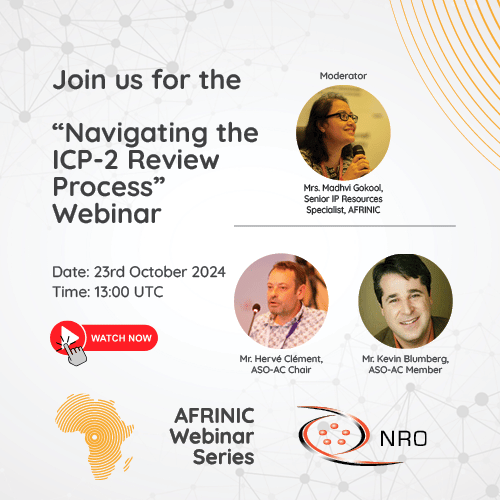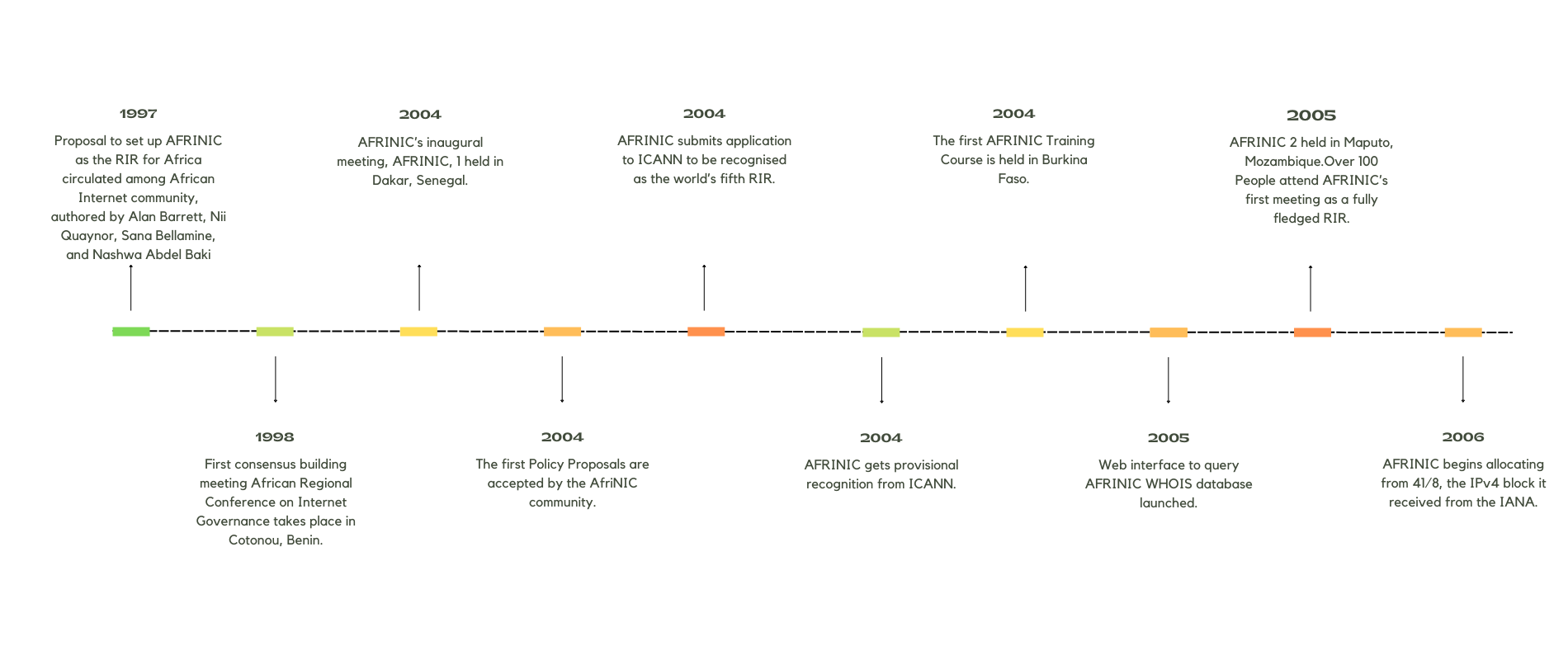Celebrating 18 years of AFRINIC:
Connecting Africa from idea to reality.
The Internet heavily relies on unique number identifiers like Internet Protocol (IP) address space (IPv4 and IPv6) and Autonomous System Numbers (ASNs) to connect networks and devices. In the early 1990s, assigning IP addresses was managed by a single individual named Jon Postel of late memory, who maintained a list of assigned network addresses using a paper notebook. However, with the rapid growth of the Internet on the global arena the management of IP addresses and ASNs became more complex, leading to the incorporation of the Internet Corporation for Assigned Names and Numbers (ICANN) and the establishment of the Regional Internet Registries (RIRs).
The primary function of the RIRs, of which there are five worldwide, is to ensure proper distribution of critical Internet resources like IP addresses and ASNs in their respective regions. These organisations are accredited by the Internet Corporation for Assigned Names and Numbers (ICANN) to perform these crucial functions. ICANN is responsible for managing the names and numbers systems of the Internet.
The current system of managing Internet address space involves RIRs sharing global responsibility with the Internet Assigned Numbers Authority (IANA), which is a function of ICANN. The IANA functions are administrative tasks critical to ensuring the international coordination of IP addressing, domain names, and protocol parameter identifiers used by Internet standards. These functions are performed by Public Technical Identifiers (PTI) under contracts and sub-contracts with ICANN.
The African Network Information Centre (AFRINIC) is the youngest RIR that was created with the objectives to serve the African continent and the Indian Ocean region; and this Saturday, 8th of April 2023 marks 18 years since AFRINIC received accreditation from ICANN in 2005, to become the fifth Regional Internet Registry (RIR). In this article, we will share a highlight of our Journey from its inception to date.
The AFRINIC Concept
In the mid-1990s, organisations providing Internet services and other network operators in Africa were required to get Internet Number Resources (INR) from other Regional Registries, specifically from Internet registries in North America (ARIN), Europe (RIPE-NCC) and Asia-Pacific (APNIC).
Map of Africa with IP address distribution before and after AFRINIC's formation
Before
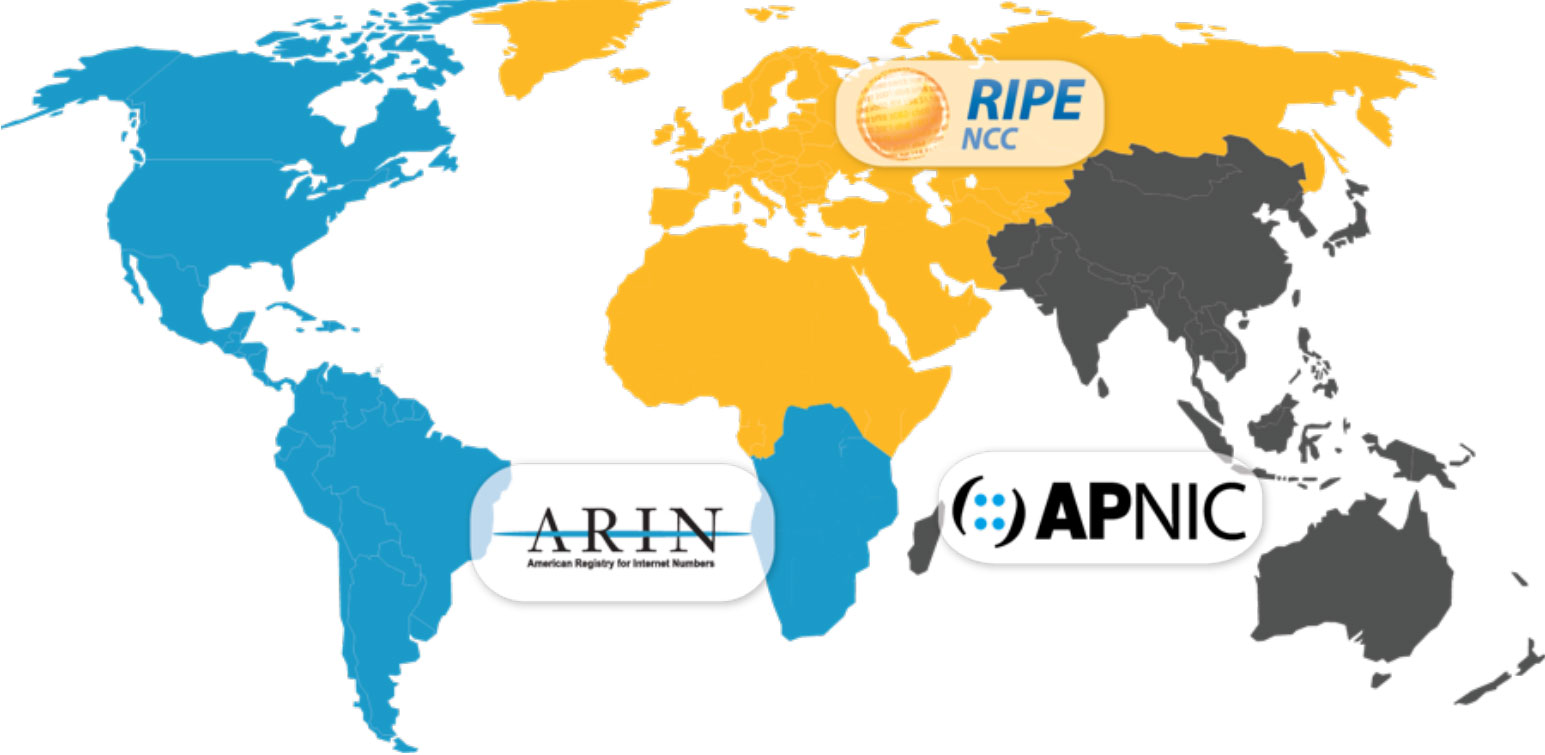
After
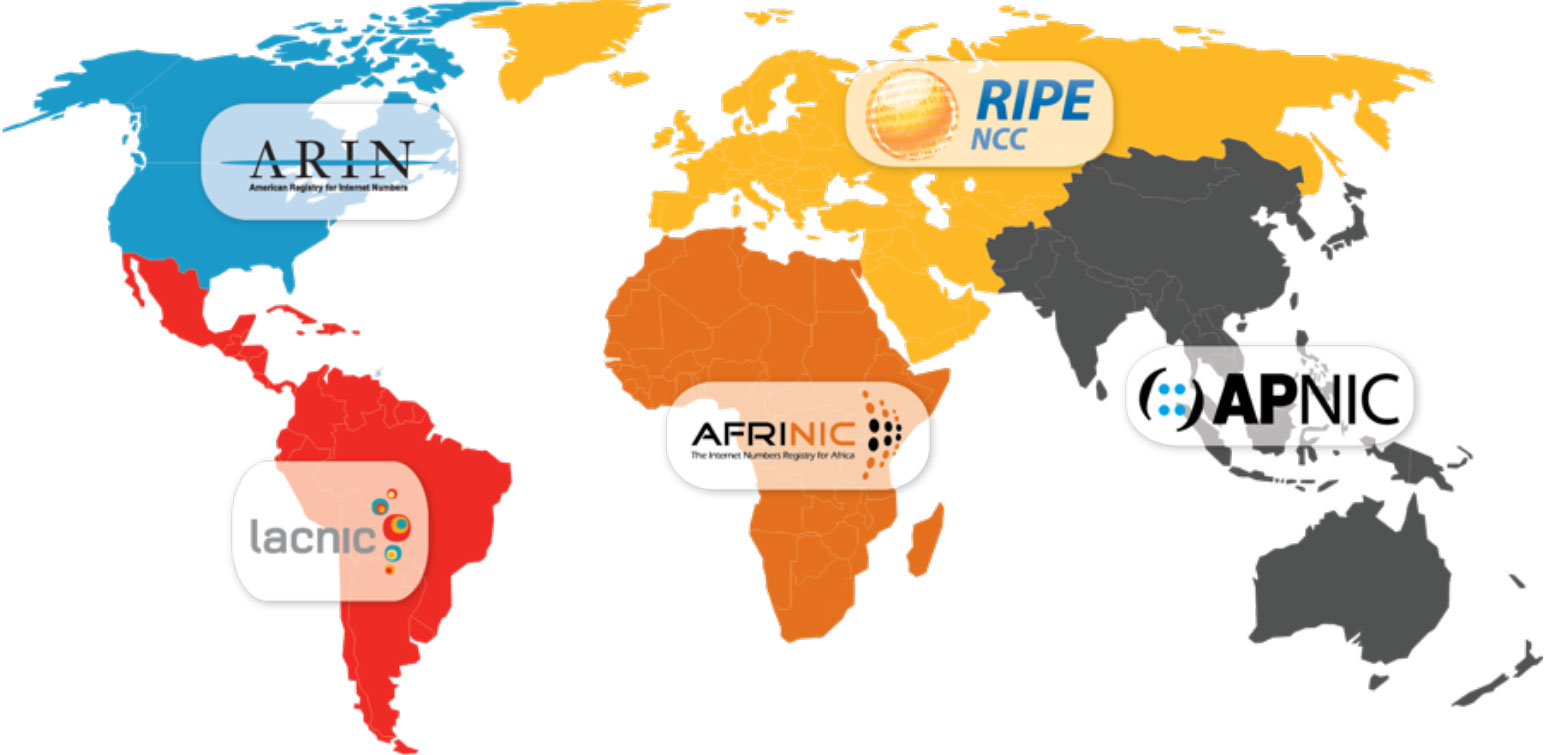
Inception
Requesting resources from other regions made little sense to numerous African Internet pioneers because the realities in these outer regions did not necessarily reflect Africa's demands and needs. This led to discussions to start a dedicated Regional Internet Registry for the continent. It is noted that every region i.e Asia-Pacific, European, and American, had its own registry except Africa, hence it was critical that a registry be established for Africa. African Internet pioneers came together birthing the idea of a Regional Internet Registry for Africa. A move that was applauded by many prominent individuals from the global Internet community.
“It took the elders a decade to build consensus for forming AFRINIC, it has taken the developers a decade to establish AFRINIC: We must have a strong AFRINIC community before the end of the next decade.” Dr. Nii Quaynor, AFRINIC Board of Trustee (2001-2004)
Africa as a region presented unique and distinct challenges during the proposal, the setup and throughout the early years of this continent-shaping organisation. Although it wasn't always easy, the pioneers rose above the challenges, collaborated, and pulled together to find ways to reach a common ground regarding Internet address space management through a multistakeholder approach. During this formative phase, Africa demonstrated leadership and cooperation, and subsequently, the challenge was met.
‘’My first meeting with Dr.Nii Quaynor in Geneva in one of the White Paper meetings that gave birth to ICANN; that was back in 1997. We were just two Africans there among the 700 participants.! We wondered whether this mattered for Africa. Moreover, we decided that Africa had to be part of the movement, whatever the case. Key to this idea was that the continent established a regional registry of its own, which catered for Africa.” - Mr. Pierre Dandjinou, AFRINIC Board Chairman (2004-2008).
AFRINIC's creation was and is a true demonstration that states, organisations, and individuals in Africa are able to cooperate and collaborate for good, despite the diversity found on the continent. Mr. Alan Barrett, Dr. Nii Quaynor, Mr. Sana Bellamine, and Mr. Nashwa Abdel-Baki came up with the first inception proposal in writing, followed by the Cotonou Summit on Internet Governance in 1998, which was instrumental in positioning the dream of AFRINIC on the right track. It took seven years for this to materialise, with the first Steering Committee dealing with intricacies like reconciling the multiple languages and regional sensitivities or selecting host countries for AFRINIC.
The committee then decided on different countries to host the different components of the Regional Registry. Mauritius was chosen as the RIR headquarters, Egypt was selected as the technical base, Ghana was the domicile for capacity building, and South Africa was selected to host the data center.
The committee then decided on different countries to host the different components of the Regional Registry. Mauritius was chosen as the RIR headquarters, Egypt was selected as the technical base, Ghana was the domicile for capacity building, and South Africa was selected to host the data center.
| 2001-2009 | Mr Alan Barrett | South Africa |
| 2001-2006 | Mr Charles Mussi | Uganda |
| 2001-2004 | Mr Kouma D. Cyriaque | Gabon |
| 2001-2004 | Mr Theo Kramer | South Africa |
| 2001-2004 | Mr Richard Bell | Kenya |
| 2001-2004 | Mr Zakaria Amar | Mauritania |
| 2001-2004 | Mr Yann Kwok | Mauritius |
| 2001-2004 | Dr Nii Quaynor - Board Chair | Ghana |
The First Board of Trustees, chaired by Dr. Nii Quaynor
Alongside these developments, other Regional Registries and partners like ICANN provided support.
In April of 2005, AFRINIC received its formal accreditation from ICANN as the world's fifth RIR. Back then, the mission was “To be the leading Internet resource management organisation in Africa, dedicated to ensuring the stable and secure operation of the Internet in the region.” With a vision of “Becoming the provider of choice for quality Internet number resources, related technologies and capacity building services in Africa.” The mission and vision still point to the true north today, with a commitment to serve the African Internet community through efficient service delivery in a global multi-stakeholder environment.
The establishment of AFRINIC was made possible, in part, due to support from various governments. For instance, the South African government hosted the first two AFRINIC staff members and covered all expenses during the organization's initial year of operations. This aid was vital in helping AFRINIC take off.
Government support has been crucial in helping AFRINIC grow and develop. Without it, the organization would have faced numerous challenges in establishing itself and carrying out its critical role in managing internet resources in Africa.
18 years of service to the African Internet Community
As AFRINIC clocks 18 years, we have distributed over 111 million IPv4 addresses, 10,000 /32s of IPv6 addresses and 2281 ASNs in Africa and our contribution to the digital growth of Africa today is widely recognised.
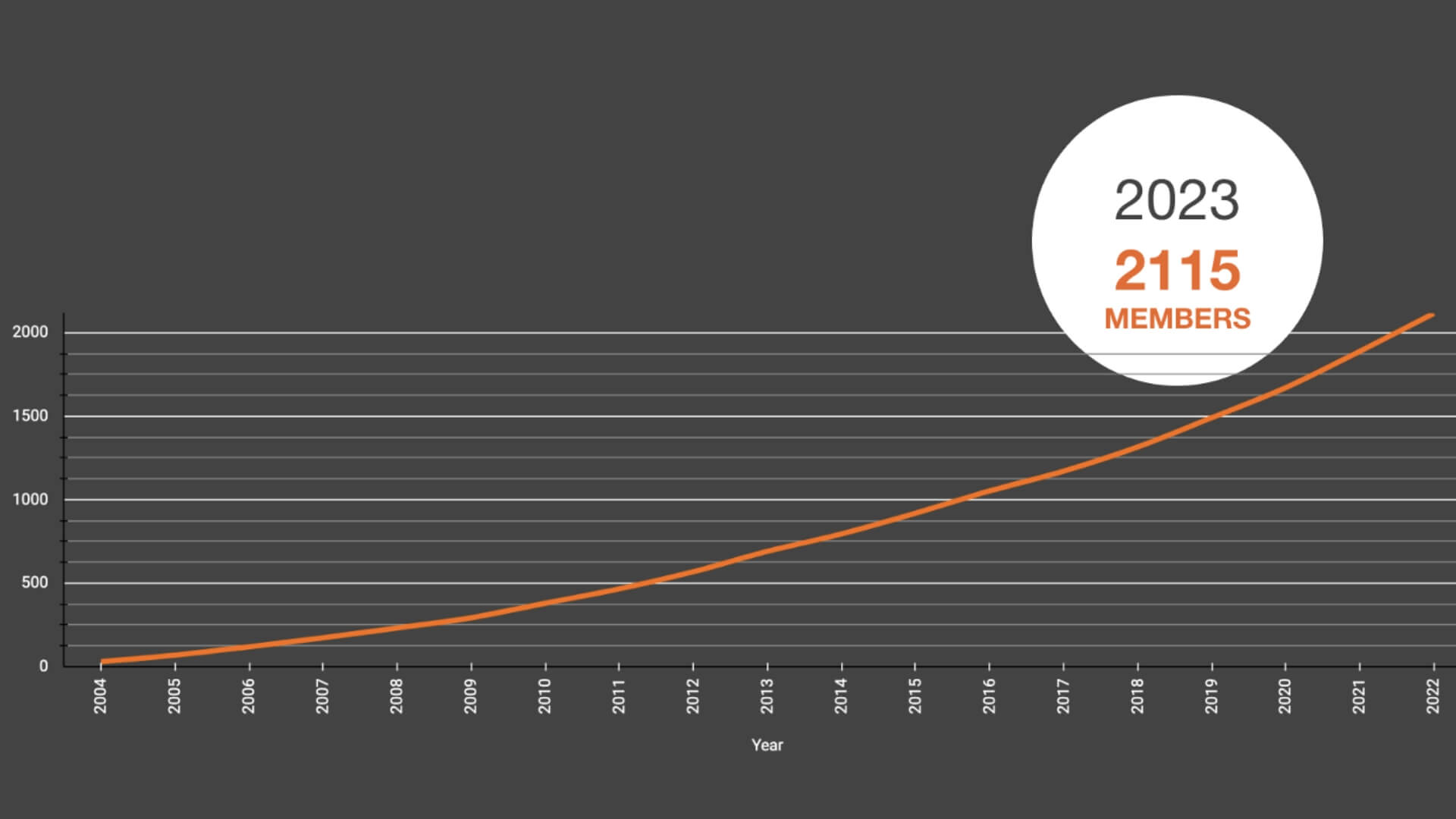
In addition to our core mandate of Internet Numbers Registration, AFRINIC has been a crucial contributor to developing a scalable, more resilient and secure Internet in the region through programs and initiatives.
These initiatives include the Internet Routing Registry and RPKI infrastructures where we help secure the global routing table. Another initiative is the DNS program that includes Reverse DNS, DNSSEC and root server copies in the region. Additionally, we support the region’s capacity building and deployment for IPv6. We endeavour to provide support to local Internet exchange points and other Internet development programs as initiatives to engage with our community through sponsorships, grants and fellowship programs.
AFRINIC has also played an important role in shaping Internet Governance and Policy development in Africa. Through our participation in various regional and international forums, AFRINIC has been an advocate for policies that support the growth of the Internet in Africa. AFRINIC has also been involved in efforts to increase the representation of African stakeholders in global Internet governance processes, by leveraging its expertise and experience.
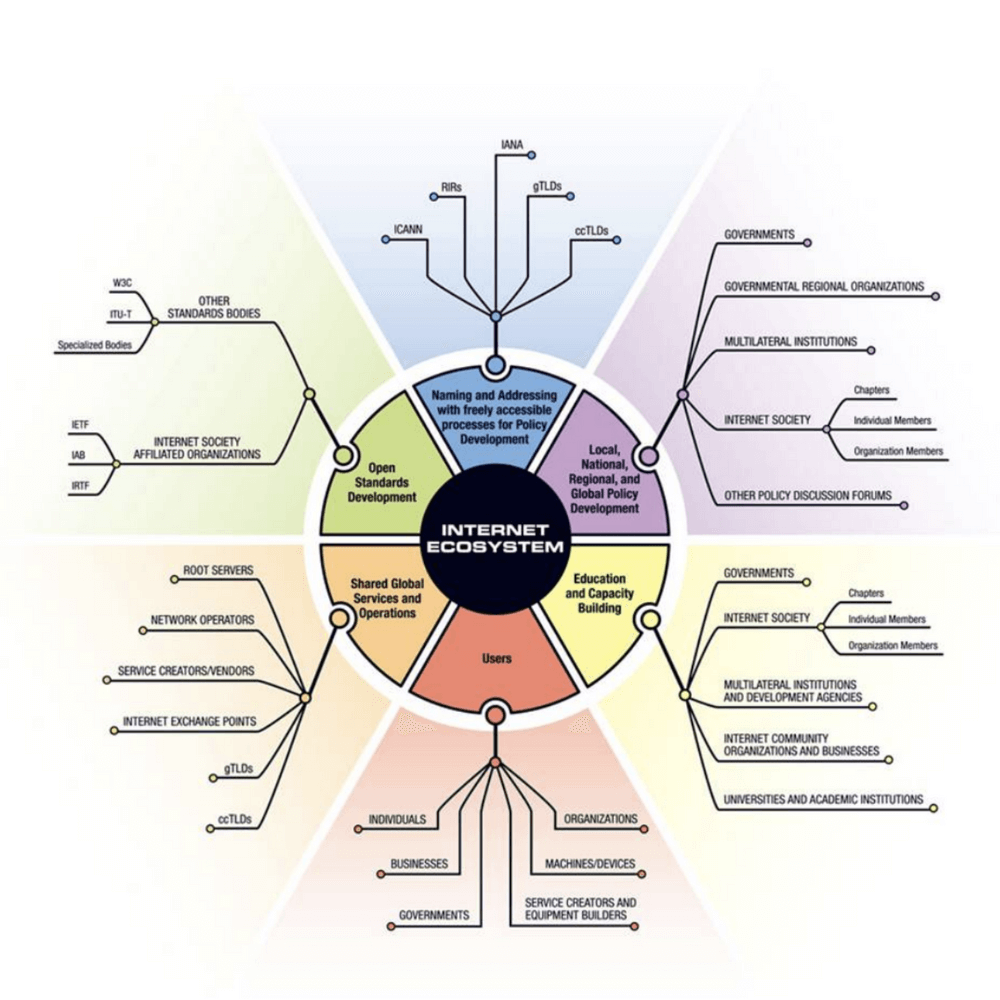
Diagram of the Internet multi-stakeholder self-governance model with the different stakeholders
AFRINIC as of now is a fully functioning RIR with over 2,100 resource members and 46 dedicated staff from 14 nationalities present in 9 countries.
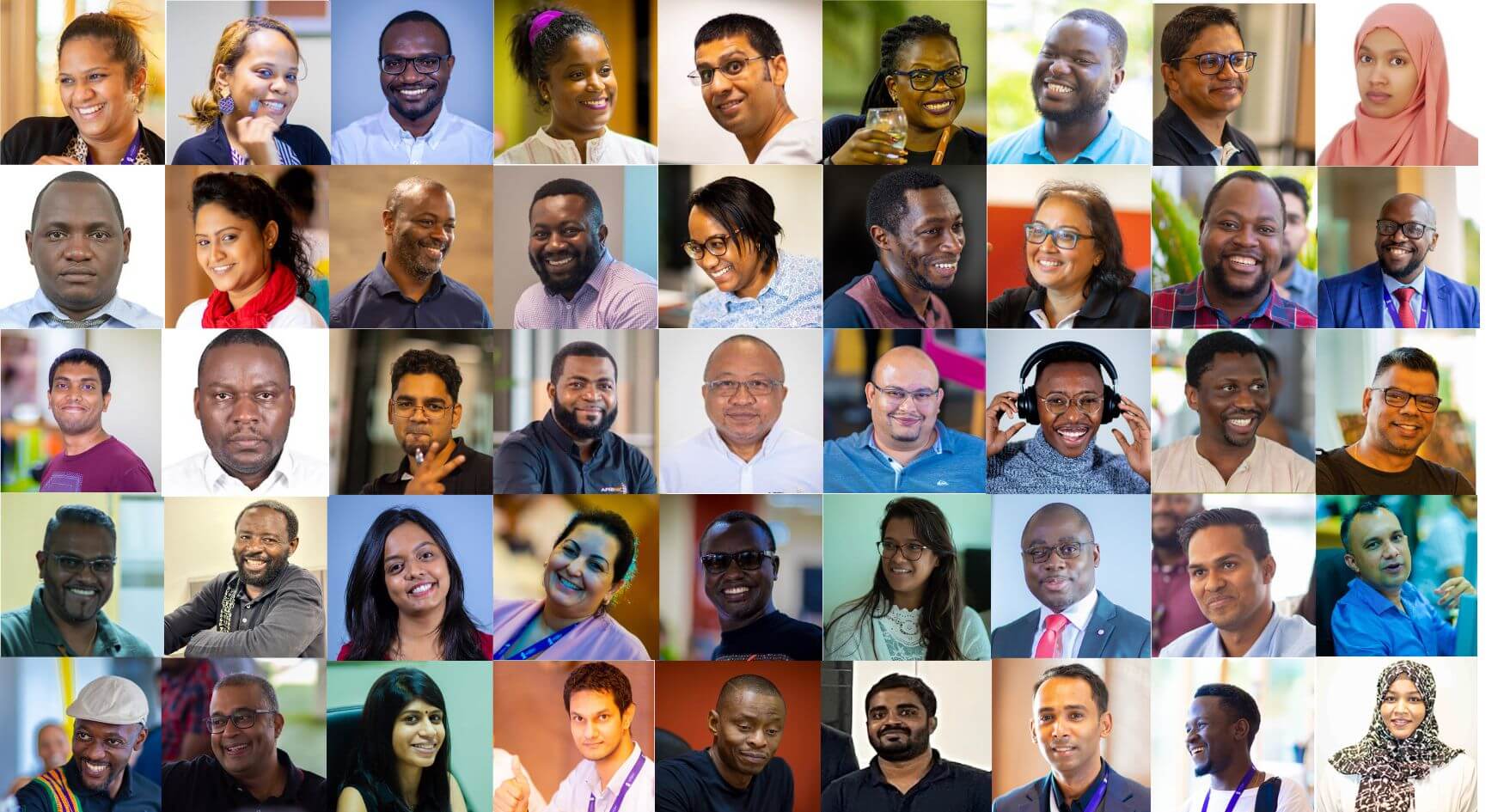
AFRINIC's success can be partly attributed to its adoption of bottom-up and multistakeholder approaches. These processes and environment have enabled the organization to effectively engage with diverse stakeholders in Africa, including governments, industry, civil society, and technical communities, and to incorporate their perspectives into decision-making processes. As a result, AFRINIC has been able to develop policies and initiatives that are reflective of the needs and priorities of its stakeholders, and to effectively manage and allocate internet resources in the region.
Challenges
For more than three years now, AFRINIC has been facing challenges that have led to a lack of a CEO, a quorate Board of Directors and many court cases. In this period of setbacks, we have remained committed to serving our members and the global Internet community. We are confident our unwavering efforts will yield positive fruits.
We take this opportunity to thank our stakeholders and our community who have been supporting us all through these difficult times. Such support is indeed invigorating and has fuelled us to pursue our noble mission.
Looking at the future
AFRINIC is resolutely looking at the future with confidence and determination, convinced that we will continue to deliver our mandate.
We remain cognisant that more effort is still required and we must not stop building upon the strong foundation on which AFRINIC was established. As the African Internet industry moves into a new phase of its development, more collaboration is required to ensure that AFRINIC continues to go from strength to strength. We must endeavour to build and equip our community to include those currently underrepresented in the African Internet sphere.
We remain cognisant that more effort is still required and we must not stop building upon the strong foundation on which AFRINIC was established. As the African Internet industry moves into a new phase of its development, more collaboration is required to ensure that AFRINIC continues to go from strength to strength. We must endeavour to build and equip our community to include those currently underrepresented in the African Internet sphere.
Conclusion
Internet Number Resources are vital resources for the sustainable growth of Africa’s economy be it for Government services, education, health, agriculture or the financial sector.
In this regard, the African Internet community should ensure that policies are adopted such that Internet Number Resources meant for Africa’s growth are adequately distributed and utilised.. Therefore, it is vital that our Resource Members and African Community Members actively engage in AFRINIC’s Policy Development Process and its governance. In this present era, the African continent relies largely on the Internet in many aspects for the sustainable development of its social and economic growth. AFRINIC has an important role to play for our motherland, and a strong AFRINIC, is one that is fully supported by its members and community at large to continue “To be the leading Internet resource management organisation in Africa, dedicated to ensuring the stable and secure operation of the Internet in the region.”

